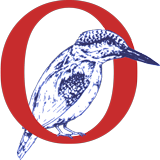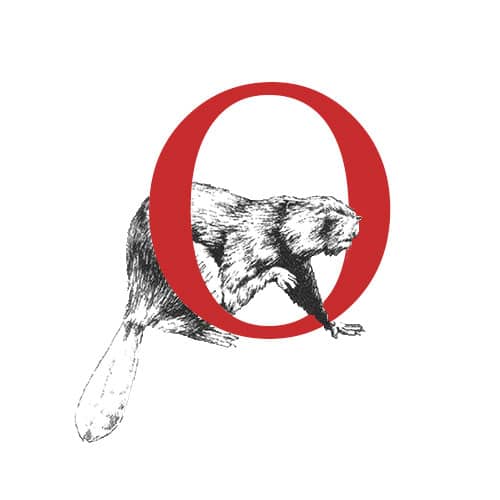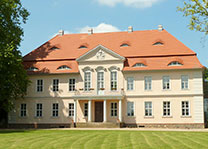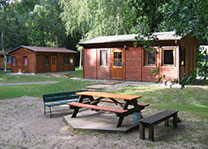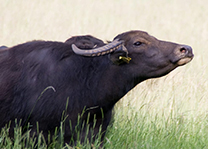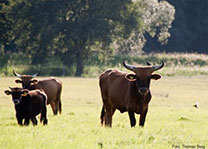together with NABU Brandenburg
Amusement park or national park — that is the question now
On the draft of the amendment to the Lower Oder Valley National Park Act
With the draft amendment, Brandenburg is saying goodbye to honest and serious nature conservation. The National Park Act of 1995, enforced by the then Environment Minister and today’s Prime Minister Matthias Platzeck, was already a verbose, but poor law. In addition to plenty of environmental poetry, there was actually only one specific point in the law with the date 2010, everything else should be regulated on the basis of the law by ordinance, which has not yet happened to this day. This year 2010, i.e. the date by which half of the national park, around 5,000 of 10,000 hectares, should be legally binding as a total reserve, is now to be deleted without replacement. Instead, it is not even replaced by a new date.
The legislature gave the authorities 15 years time to designate half of the area as a total reserve, only then can the Lower Oder Valley be designated as an internationally recognized national park. 10 of the specified 15 years have largely passed unused, and Brandenburg obviously no longer dares to achieve the goal it has set itself in the remaining 5 years. There are definitely socially acceptable and also for the previous user groups acceptable ways to do justice to this goal. Actually, the criteria of international nature conservation prescribe a total reserve portion of at least 75% of the area for internationally recognized national parks, 50% is the minimum that is still accepted.
The waiver of a specific date without replacement makes the entire National Park Act non-binding. Conflicts are not resolved;
A waiver of a specific date will not remain without consequences, because the state of Brandenburg has voluntarily committed itself to the federal government in the major nature conservation project “Unteres Odertal” to designate half of the area as a total reserve by 2010. This is what it says in the grant notice from 1992. If the state does not comply with this obligation, the federal government can claim back the funds.
It is also not acceptable to call an area a national park without at least gradually developing it according to a fixed, manageable and binding schedule. The quality concept national park is devalued by such pretense of false facts and becomes a fraudulent label, which is also to be rejected for the benefit and protection of other national parks. Nevertheless, the country does not want to forego the promotional “national park” label. It is also Brandenburg’s only one, while Mecklenburg-Western Pomerania has three national parks that are very popular with tourists. Dispensing with the “National Park” label would mean that land restructuring funds, in particular for the expansion and construction of roads, would no longer flow into the area in the millions, as was previously the case. The Lower Oder Valley is still by far the best-funded rural area in Brandenburg, surprising that the other regions simply accept it so without complaint.
There would be no objection to this preferential subsidization of a region if the region provided something in return in the form of demanding nature conservation. But that is not the case here, the reward is nibbled and the consideration for it is not provided. That is not acceptable.
According to Section 22 of the Federal Nature Conservation Act, the federal states establish national parks in consultation with the Federal Environment Ministry. This also applies to the National Park Amendment Act. In its statement of April 27, 2006, the Federal Ministry for the Environment, Nature Conservation and Nuclear Safety took a critical position on the Brandenburg amendment plans;
“It is at least questionable whether the planned procedure with the specification of a so-called protection zone Ib without time stipulations to create the desired freedom of use meets the national and international requirements for optimal protection of the core areas of the national park.”
The BMU sees this as a “lowering of the standards compared to the applicable law” and states that “the expanded possibilities of use in the core area of the state-owned, nationally representative Lower Odertal riparian strip project, which is funded with BMU funds, do not comply with the nature of the protected area according to § 3 NatPUOG and also not the current ones Requirements of the letter of distribution of funds for the riparian strip project ”. “This also applies to the use of the polders by canoes and Canadians in the core area.”
As for the other softening of the law, one can certainly be divided on one or the other question. Nature should be able to withstand the fact that swimming and riding are allowed in a few selected places. As part of reaching a consensus, the friends’ association can imagine movement here. However, entry into water sports in the national park is to be rejected. The water-rich state of Brandenburg still has many lakes, rivers and canals that are not developed or used for tourism for water sports. On 0.3 percent of the country’s area — the only national park in the country is so small — there is no need to do water sports. It is an unnecessarily difficult encroachment on an ecosystem that is already strained by an extremely dense network of trails (a total of 200 km long).
Another negative factor is the fact that the national park area is to be reduced in size in some crucial places, as a result of which the protective strips between the poor dry grassland and the adjacent intensively fertilized arable land are lost. A so-called total reserve, in which the gathering of berries and mushrooms and thus unhindered wandering is permitted, does not deserve its name. With every understanding that existing technical-industrial lines can be maintained and renewed, the new law, unlike the old one, should also allow the construction of new lines.
Together with the amendment to the National Park Act, the Ministry of Agriculture also wants to issue a fishing ordinance and a hunting ordinance. The hunt is to be continued under the name of game damage regulation. In addition, game feeding is possible in the total reserve, and hunting is permitted in an 80 m wide forest edge strip within the national park. Anyone who knows the elongated, very narrow national park knows that a great many forest areas are affected by it. All of this is unnecessary and harmful, in any case detrimental to the national park concept. Fishing should continue to be possible even in protection zone Ib, i.e. in the planned total reserves, but fishing should only be possible in certain areas, but generally with certain time restrictions in protection zone II. From a nature conservation point of view, the extensive fishing permit in Zone II, but especially in the planned total reserves (Zone Ib), is completely unacceptable. Because this is associated with considerable disturbances and pollution that cannot be tolerated in a national park. The fishing and hunting ordinances also contradict the federal funds distribution letter for the major nature conservation project Lower Oder Valley.
The association therefore rejects the proposed amendment to the law, but also the associated ordinances on fishing, angling and hunting, in particular the associated fraudulent labeling. Brandenburg has to decide! Either it has to set a binding schedule in manageable periods of time in which half of the national park is designated as a wilderness area or it has to admit its inability to create even a single national park, renounce the prestigious label “national park” and instead create another nature park identify. At some point the moment of truth strikes for everyone.
Tom Kirschey, State Chairman of NABU Brandenburg
Thomas Berg, Chairman of the Board of Sponsors
